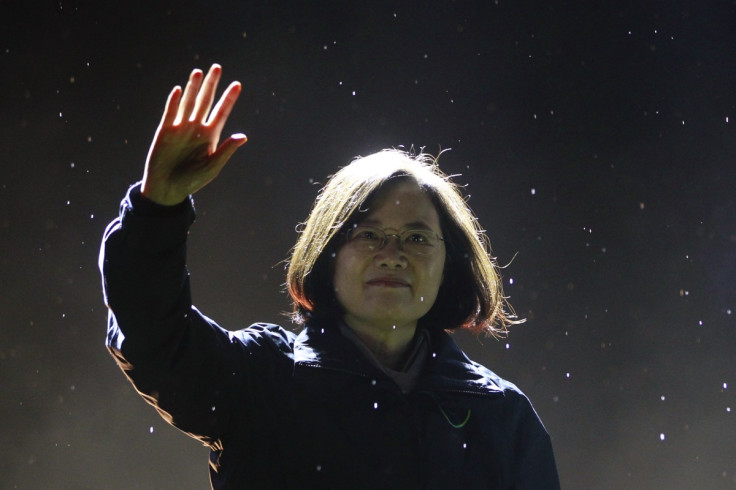Taiwan elections 2016: Democratic Progressive Party leader Tsai Ing-wen set to become island's first female president

Polls have closed in the Taiwan elections with surveys suggesting that the pro-China Kuomintang (KMT) party is set for defeat. Pro-independence party candidate Tsai Ing-wen has a commanding lead in Taiwan's presidential vote. A win for Tsai's Democratic Progressive Party would destabilise the tense relationship between Taiwan and mainland China. China claims the island as its own territory, and has made veiled threats to use force if it formally declares independence.
"This is not about defeating the other party. This is about working to overcome the obstacles in Taiwan's path," Tsai told supporters in the rain at a final rally on Friday, 15 January, in front of the presidential office building in Taipei.
Tsai has pledged to maintain the status quo of de-facto independence for the island of 23 million people. And she has refused to endorse the idea that Taiwan is part of China, and will be eventually be unified with and control the mainland – a key aim of KMT.
During the final stages of her campaign, Tsai said: "Over the past four years, I've travelled around Taiwan, I've seen the suffering of the people and I've heard the public's call for change," Tsai said in the Taipei Times. "The third rotation of power [in the nation's history] should further deepen democracy in Taiwan, fuel economic development and, most importantly, allow people to regain trust in politics. Democratic politics is responsible politics, if [a government] cannot do it well, then we change it."
"Taiwan and China need to keep some distance," said Willie Yao, a computer engineer who backed Tsai. "The change of president would mean still letting Taiwanese make the decision," he told AP.
A majority for any of the major parties in the 113-seat parliament is unclear, as independents and smaller, fringe parties fight for a toe-hold in the legislature. These include the Green Party-Social Democratic Party Alliance and the New Power Party who are running on campaigns such as same-sex marriage and indigenous land rights.
A brief history of Taiwan
Taiwan, officially called the Republic of China (ROC), split from mainland China in 1949, during the Chinese Civil War. During the conflict, the nationalistic KMT fought the Communist Party of China, led by Chairman Mao Zedong, for control of the country. While the Communists secured the mainland, making Beijing the country's capital, in 1949 the Kuomintang moved its base of operations to Taiwan and declared the ROC ruled over all of mainland China. Since then in practical terms, the Communist party has held political power in mainland China while Taiwan is a sovereign state, despite Beijing's claims that Taiwan is part of mainland China.
Taiwan has remained a one-party state controlled by KMT until the mid-1980s, when the democratisation movement began. However, it took until 1996 before presidential elections were held, and the state's political parties began acknowledging Taiwan had no authority over mainland China.
© Copyright IBTimes 2024. All rights reserved.






